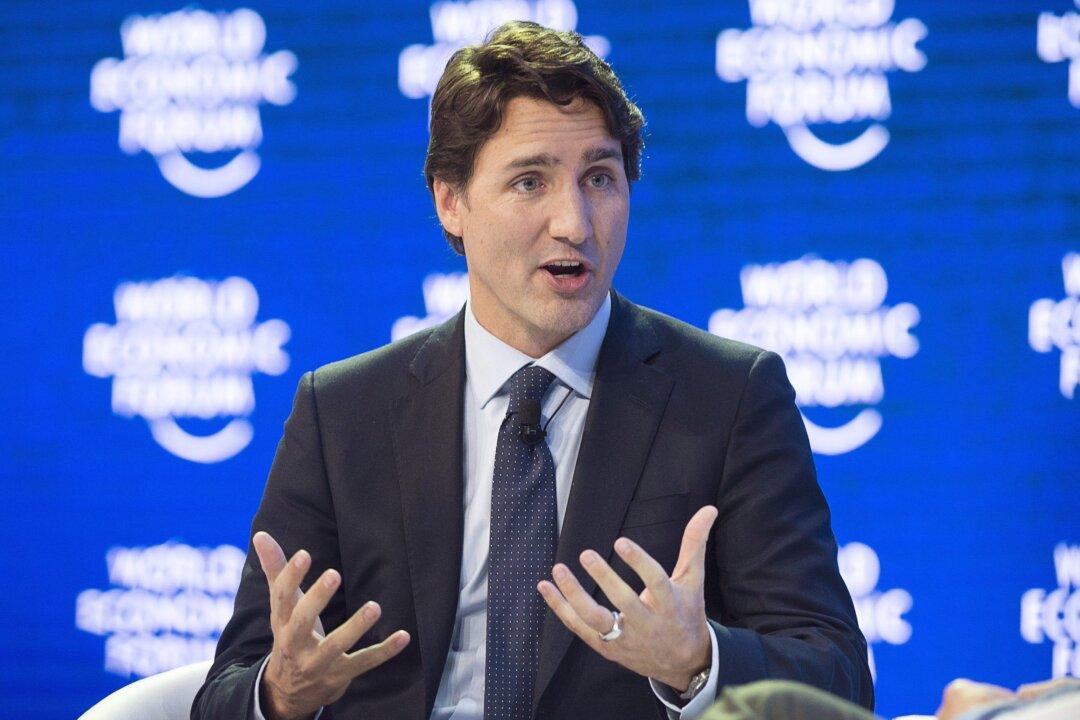DAVOS, Switzerland—A new prime minister and a new Canada.
That’s the message Prime Minister Justin Trudeau delivered when he made his entrance Jan. 19 at the annual meeting of the World Economic Forum as part of his goal to rebrand Canada on the world stage.
Trudeau sought to use his keynote address titled “The Canadian Opportunity”—delivered hours after a session called “Canada’s global pivot”—to differentiate himself from former prime minister Stephen Harper, who often used the meeting to tout Canada as a resource powerhouse.
Trudeau said Canada’s natural resources remain an important part of the economy—even as a slide in oil prices delivers an economic punch to resource-rich provinces like Alberta. But he said the country’s growth doesn’t depend on what lies underground.





